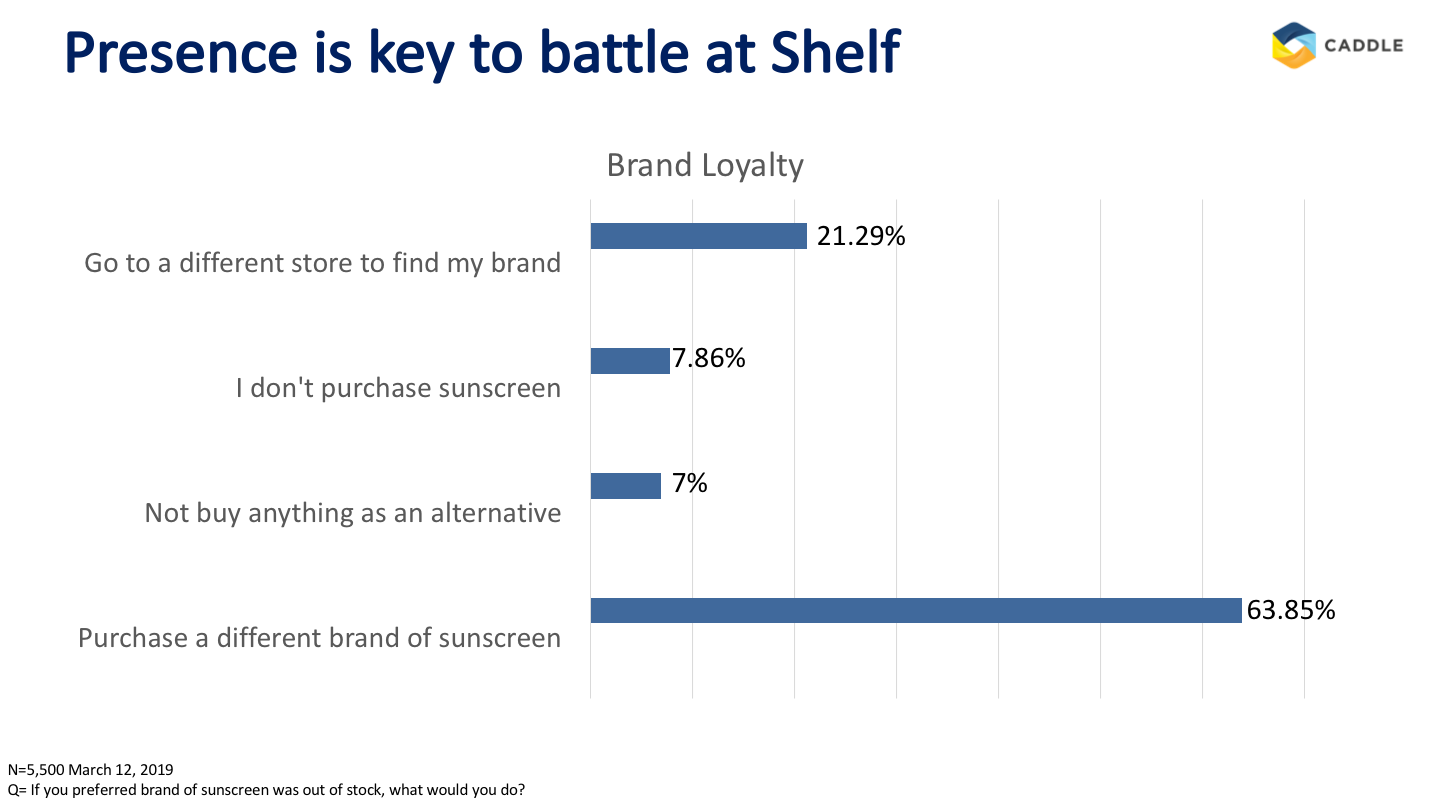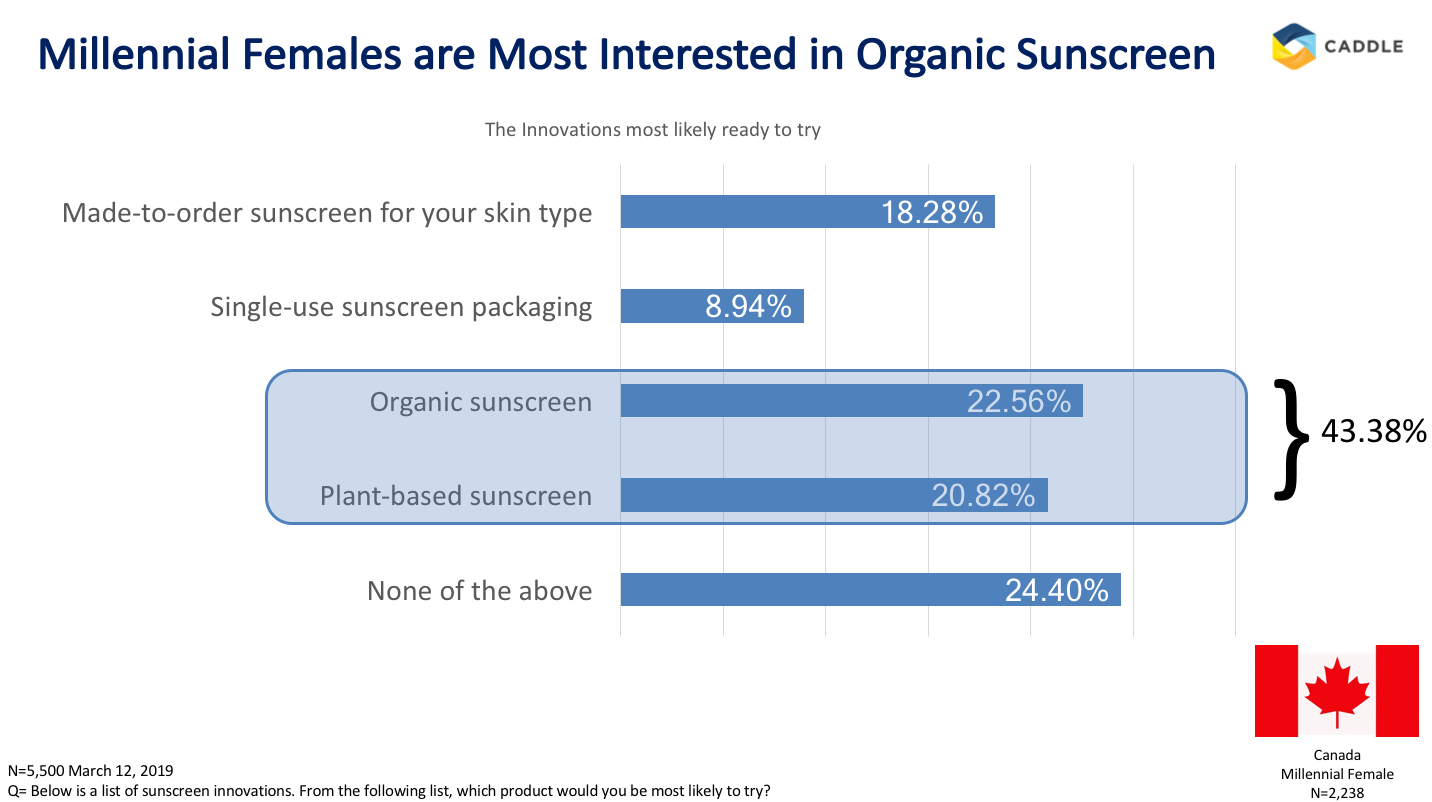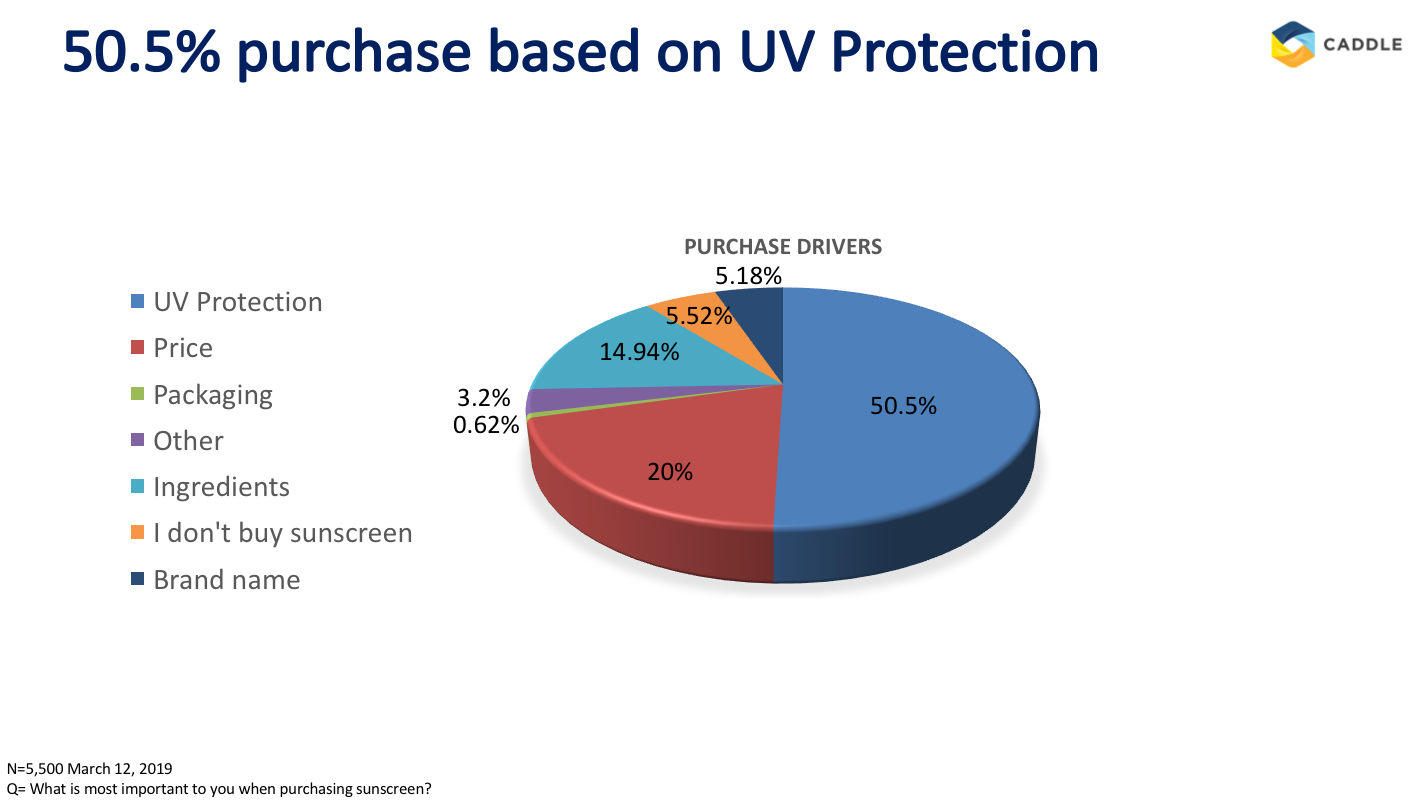Sunscreen: UV protection is important, but what is it?
Aside from being great summer activities, what do picnics, swimming, hiking and camping all have in common? Sunburns. Yes, as much as we all love the summer time for the endless opportunities it gives us to come out of our winter hibernation, there are some risks that come along with spending too much time unprotected from the sun.
The global sun care market is a profitable one that was valued at $14.8 billion in 2015. This market is expected to see a 5.8% compound annual growth rate which is expected to value the market at $24.9 billion by 2024.
With North America accounting for 35% of the global sun care market in 2015, Caddle sent out a survey to our users asking them their purchasing habits when it came to purchasing sunscreen. When comparing our insights to market trends we believe they could shed some rays on how those in the industry could maintain profitable gains.
Burning to be in your shopping cart
If your preferred brand of sunscreen was out of stock, what would you do? According to our survey results, 64% of you don’t seem to be too concerned as those respondents indicated that they would simply purchase a different brand of sunscreen. To industry leaders this hurts more than a sunburn. Leading vendors such as Estee Lauder, L’Oreal, Johnson and Johnson, Beiersdorf AG and Unilever are focused on maintaining their brand image.

While another study found that one-third of sunscreen users are brand loyal, they also found that 62% of users aren’t picky and will use “whatever they have”, further justifying that consumers aren’t completely brand loyal when it comes to purchasing sunscreen.
While loyalty is hiding in the shade, leaders are focusing on including innovative products to their portfolio.
Au naturel
The whole purpose of sunscreen is to prevent the sun’s rays from burning your skin and causing more detrimental effects such as skin cancer. But consumers have also expressed the concern of using products that contain unsafe ingredients and can also cause severe conditions after prolonged exposure. The transition from unnatural products in cleaners and shaving creams have shifted towards organic and natural products. Similarly, sunscreen is the next runner up. The booming organic personal care markets have been additionally added to the general development of the sunscreen market. This is a step in the right direction as 43% of millennial females are most interested in organic or natural innovative sunscreens.

UV Protection
While brand might not necessarily be the purchase driver for sunscreen, UV protection certainly is. When asking our respondents what’s most important when purchasing sunscreen, 51% of respondents said that they purchase sunscreen based off UV protection. Time magazine quoted that UV protection/SPF number was the No.1 reason why consumers bought one brand of sunscreen over the other. Interestingly, only 43% of consumers know what SPF means. While simple, perhaps developing a product that informs consumers of the SPF numbers and what the numbers mean is an innovation that industry leaders could adopt to their products.

So what?
The sunscreen industry certainly is a hot topic which is showing rapid growth over the coming years. If you’re in the industry, don’t get burned from not following industry trends. Our insights align with the industry to show that consumers are most interested in chemical free sunscreens that provide effective UV protection. Furthermore, while leaders are focused on adding new innovations to their product lines, it may be beneficial to incorporate the meaning of SPF numbers as consumers aren’t entirely sure of its meaning and how it can be a benefit to them.
If you’re in the CGP industry and are interested in gaining insights on your consumers, we encourage you to reach out to us and see how we can transform your questions into insights.
[simple-author-box]
